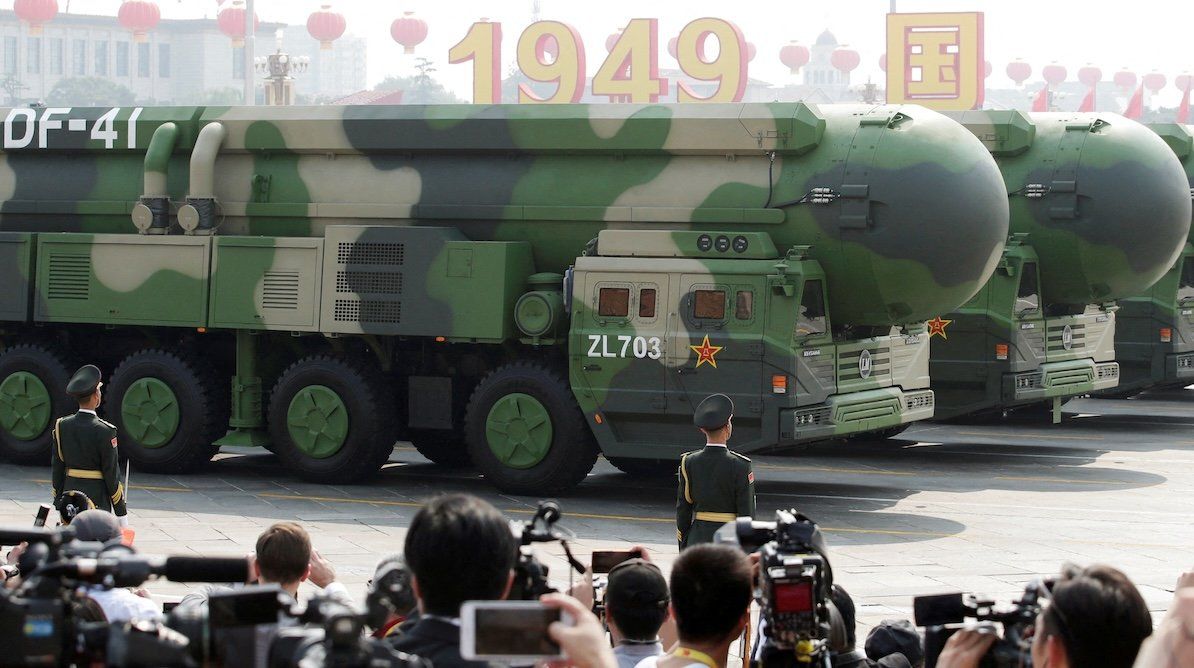Military vehicles carrying DF-41 intercontinental ballistic missiles travel past Tiananmen Square during the military parade marking the 70th founding anniversary of the People's Republic of China, on its National Day in Beijing, China, on Oct. 1, 2019.
Why now? Conducting a rare and provocative test might seem out of step with the softer touch Beijing has taken in foreign affairs this year. It comes in the middle of the United Nations General Assembly, just ahead of a planned phone call between Presidents Joe Biden and Xi Jinping, and just after the People’s Bank of China announced a raft of measures to fight persistent economic malaise.
Eurasia Group expert Jeremy Chan says a few causes could be behind the timing of the launch, most of which seem directed at the US. Though Beijing has been attempting to stabilize relations with Washington, increasing closeness between American allies like Japan, the Philippines, and South Korea makes China feel hemmed in. Frustration is also growing in Beijing over tightening US-led export controls on China’s access to advanced technology, as well as expanded sanctions against Chinese firms for their alleged support for Russia’s defense industrial base. Beijing is likely also angered by the US backtracking on earlier commitments made to China to withdraw a Typhon missile system that has been deployed to the Philippines since April. Shooting a city-killer missile just north of the archipelago’s largest island may serve as a useful reminder.
“Beijing might be saying ‘We’re not happy about the US backing away from its commitment to remove the Typhon system, and we’re going to express our displeasure by flying our long-range missile directly over the location of your mid-range missiles,’” Chan explains.
We’re watching whether the US and the Philippines get the message and whether the incident comes up as Biden prepares for the last few set pieces over which he will preside in the US-China relationship.
